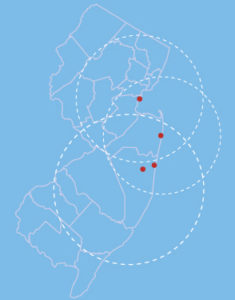Teaching Young Special Needs Children How to Play with Others: A Parent’s Guide

Learning how to play and socialize with others is a critical aspect of a child's social-emotional development. For young children with special needs, this type of play may not come as naturally compared to their neurotypical peers. Difficulty learning how to play with others can be due to a range of factors, including but not limited to:
- Lack of verbal communication skills
- Difficulty with sensory input or overstimulation
- Trouble understanding social queues or reading facial expressions
- Physical or cognitive impairments
- Learning disabilities or developmental delays
As a parent of a child or children with special needs, there are ways you can help them overcome such challenges. Children who are neurodivergent often prefer more solitary forms of play, such as lining up their favorite objects or sorting different items according to size, color, and shape. While this form of play is perfectly healthy and should never be discouraged, playing with others allows children to practice and develop their social, emotional, and critical thinking skills.
Even if your child is not yet ready or able to ask others to play, there are other types of play that young children will often engage in to help them learn important social skills, such as:
- Onlooker play – this type of play is when a child sits and observes other children playing without partaking in the activity. As a parent, you may feel discouraged that your child is not joining in on the fun, but this type of play is a natural form of learning how to play with others.
- Parallel play – this type of play occurs when children are playing side by side but not interacting with or influencing one another. Although this may seem like a solitary form of play, children will still observe and often begin mimicking and learning from each other.
These are only two of the six stages of play development, and all children will reach these particular milestones at their own pace. Understanding the various stages and their role in your child's development will help you to manage any challenges your child may face in various social settings.
Books can be a valuable and engaging tool to teach children social skills by showing them what to expect in social situations. Visual aids such as flashcards or expression charts are other helpful tools for teaching your child to understand various non-verbal social queues, which is an important form of communication.
Final Thoughts
Modeling and practicing desired behaviors are other ways to begin teaching your child social skills at home. Whether learning to say "please" and "thank you" or to take turns while playing a game, such behaviors will help strengthen the foundation of your child's social-emotional development.
Keep in mind that all children have their unique strengths and abilities. Helping your child find common ground with others through shared interests can help encourage more positive social interactions. Of course, never force your child to interact or play with others against their will, as this could be detrimental to their progress. Taking things one step at a time will help you and your child not become overwhelmed. Although learning to play with others is critical for a child's social-emotional development, remember that any form of play should be fun!

Alpha School an private special education school in New Jersey
Our Mission at The Alpha School is to help all of our special needs students with the learning, social, language, and behavioral support they deserve. Our highly skilled staff are committed daily to helping each student to becoming the best they can while providing a safe and nurturing educational environment.
We would be more than happy to discuss your child’s specific needs and challenges, so please call us at 732.370.1150, or request a tour of Alpha School of Jackson, NJ located just minutes off of Route 9 and Route 195 in Ocean County.
— John Gonzalez, Principal-Alpha School, Jackson, NJ
About RKS Associates
At all the RKS Schools we pride ourselves in discovery the hidden treasures of all of our students. Our academic and support services are appropriately customized for a student unique and diverse needs so that they can reach their full potential.
Alpha School is part of special needs network of schools located in Monmouth, Middlesex and Ocean County New Jersey. Since 1980 the RKS Associates schools have been leaders in helping special needs helping students with various disabilities including autism, Down's syndrome, communication, learning, social, behavioral and emotional disabilities. The range of services RKS schools provide is academic instruction and speech, occupational and physical therapies. In addition to Life Skills, Technology, and a full complement of Support Services.



